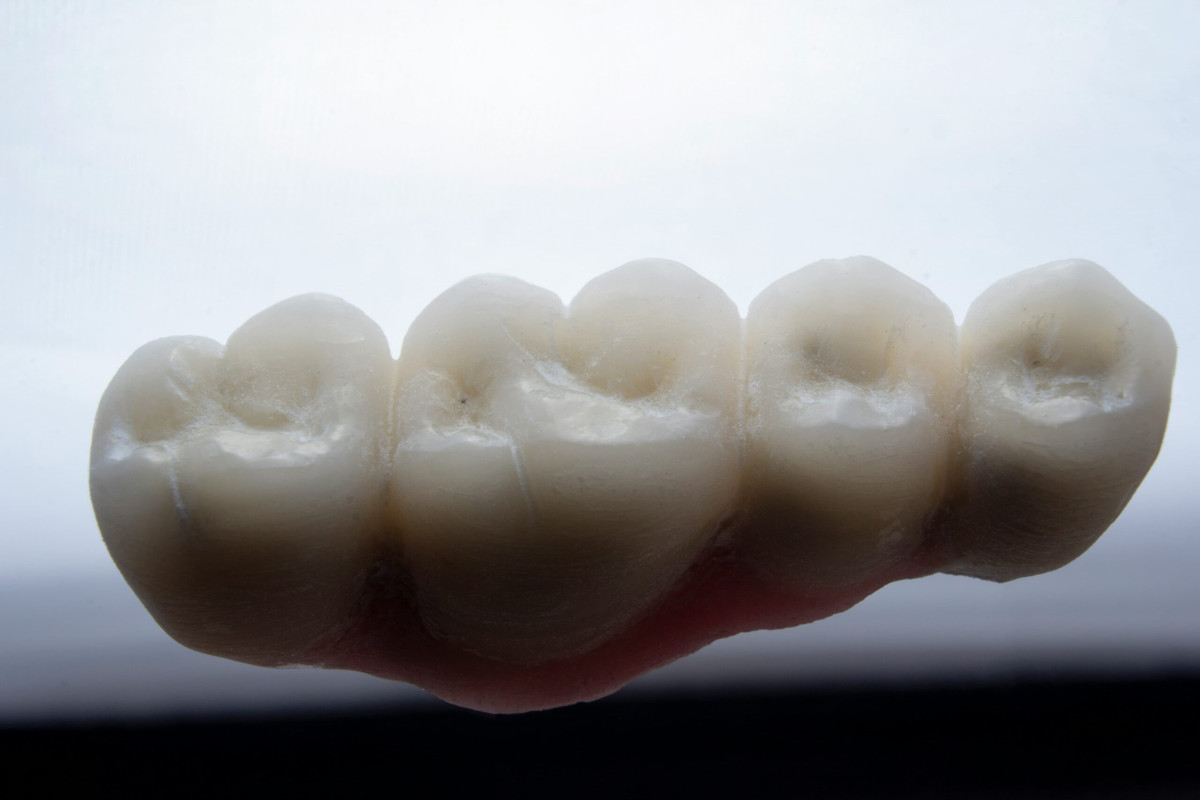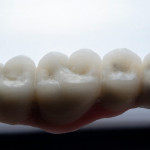What Is a Dental Bridge and How Does It Work?
A dental bridge is a fixed dental restoration designed to replace one or more missing teeth by “bridging” the space between two healthy teeth or implants. Whether you're missing a single tooth or several, dental bridges offer a stable, natural-looking solution that helps you eat, speak, and smile more comfortably. The bridge consists of three main components:
-
Abutment teeth: These are the natural teeth or dental implants on either side of the gap, which serve as anchors for the bridge.
-
Pontic: This is the false tooth (or teeth) that fills the gap. Pontics are custom-made to match the shape, size, and color of your natural teeth.
-
Dental crowns: These are placed over the abutment teeth to hold the pontic securely in place.
The result is a strong, natural-looking restoration that restores both function and aesthetics.
How a Dental Bridge Helps
Without a replacement, missing teeth can cause surrounding teeth to shift, disrupt your bite, and even lead to bone loss in the jaw. A dental bridge not only improves your smile’s appearance but also preserves oral health by maintaining the structure and alignment of your remaining teeth.
Types of Dental Bridges: Which One Is Right for You?
When considering a dental bridge, it’s important to understand the different types available. The best choice depends on the location of the missing tooth, the health of adjacent teeth, and your personal preferences. Below are the four main types of dental bridges, each with unique benefits.
1. Traditional Dental Bridge
This is the most common type of dental bridge. It involves placing crowns on two healthy natural teeth (abutments) on either side of the gap, with a pontic in between.
-
Best for: Replacing one or more teeth when strong, healthy teeth are on both sides.
-
Pros: Durable, long-lasting, and cost-effective.
-
Consideration: Requires reshaping adjacent teeth for crown placement.
2. Cantilever Dental Bridge
A cantilever bridge is similar to a traditional one, but it’s supported by only one abutment tooth instead of two.
-
Best for: Areas of the mouth that don’t endure heavy biting pressure, such as front teeth.
-
Pros: Useful when only one neighboring tooth is available.
-
Consideration: May put more stress on the supporting tooth.
3. Maryland Bonded Bridge (Resin-Bonded Bridge)
This conservative option uses a metal or porcelain framework bonded to the back of adjacent teeth instead of crowns.
-
Best for: Missing front teeth where appearance is key.
-
Pros: Minimally invasive and preserves healthy tooth structure.
-
Consideration: Less durable under heavy biting force.
4. Implant-Supported Dental Bridge
This advanced option uses dental implants instead of natural teeth as anchors, making it the most stable and long-lasting bridge solution.
-
Best for: Patients missing multiple teeth or those who don’t have healthy neighboring teeth.
-
Pros: Highly secure, no need to modify adjacent teeth, helps prevent bone loss.
-
Consideration: Requires surgery and longer healing time.
Dental Bridge vs. Dental Implant: Which Should You Choose?
If you're weighing your options, it's common to ask: Should I get a dental bridge or a dental implant?
Both options are effective, but dental bridges offer a quicker and often more budget-friendly solution, especially if surrounding teeth are already candidates for crowns.
Let Ridgetop Help You Decide
At Ridgetop Dental Implants, our experienced team will assess your oral health, goals, and budget to recommend the ideal solution. Whether you're leaning toward a bridge or exploring implants, we'll help you make an informed, confident choice.
👉 Not sure which is right for you? Schedule a free consultation today and let us help you restore your smile.
Benefits of Dental Bridges: Why They’re Worth Considering
1. Restore Your Smile and Confidence
2. Improve Chewing and Speaking Ability
3. Maintain Facial Structure and Tooth Alignment
4. Fast and Minimally Invasive Treatment
5. Cost-Effective and Insurance-Friendly
6. Long-Lasting Results with Proper Care
💰 Average Cost of a Dental Bridge
In Northern Virginia, the cost of a dental bridge typically ranges from:
-
$1,500 to $3,000 for a traditional bridge (one pontic, two crowns)
-
$2,000 to $4,500+ for more complex or multi-unit bridges
-
$4,000 to $15,000+ for implant-supported bridges (includes surgery and lab work)
✅ Insurance and Financing Options at Ridgetop
At Ridgetop Dental Implants, we:
-
Work with most major insurance providers
-
Offer transparent pricing with no surprise fees
-
Provide flexible financing plans and third-party payment options
Ready to Get a Personalized Quote?
📞 Call us today or book online to find out how affordable your dream smile can be.
How Long Do Dental Bridges Last?
One of the most common concerns is: “How long will my dental bridge last?” The good news is that with the right care, dental bridges can last anywhere from 5 to 15 years—and often much longer with proper maintenance.
The durability of your dental bridge depends on several factors, including materials, oral hygiene habits, and how much stress the bridge endures during chewing.
Ready to Restore Your Smile? Schedule a Consultation Today
🎯 Take the First Step Toward a Healthier, Happier Smile
📞 Call us today or
💻 Book your free consultation online











